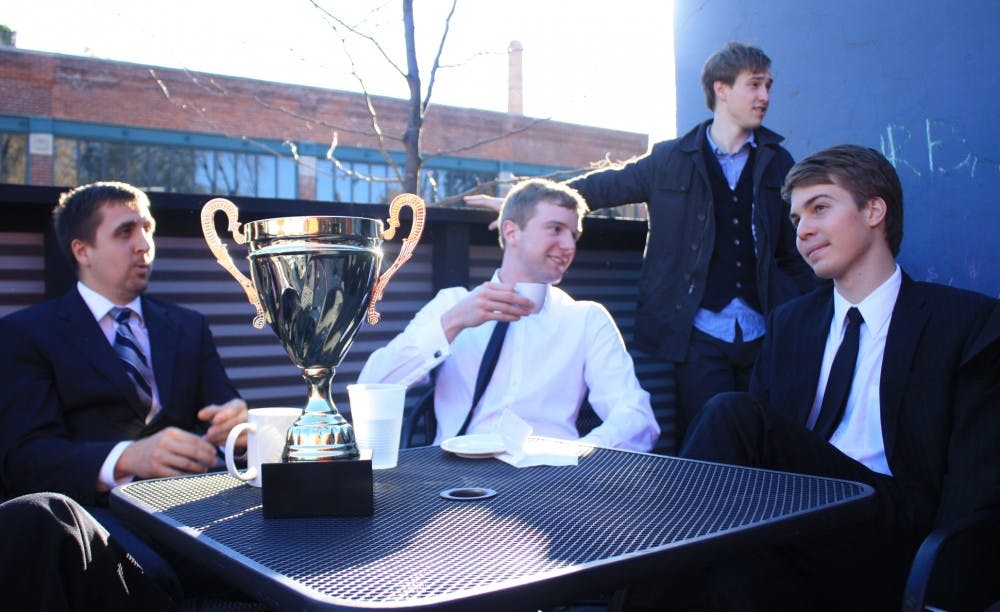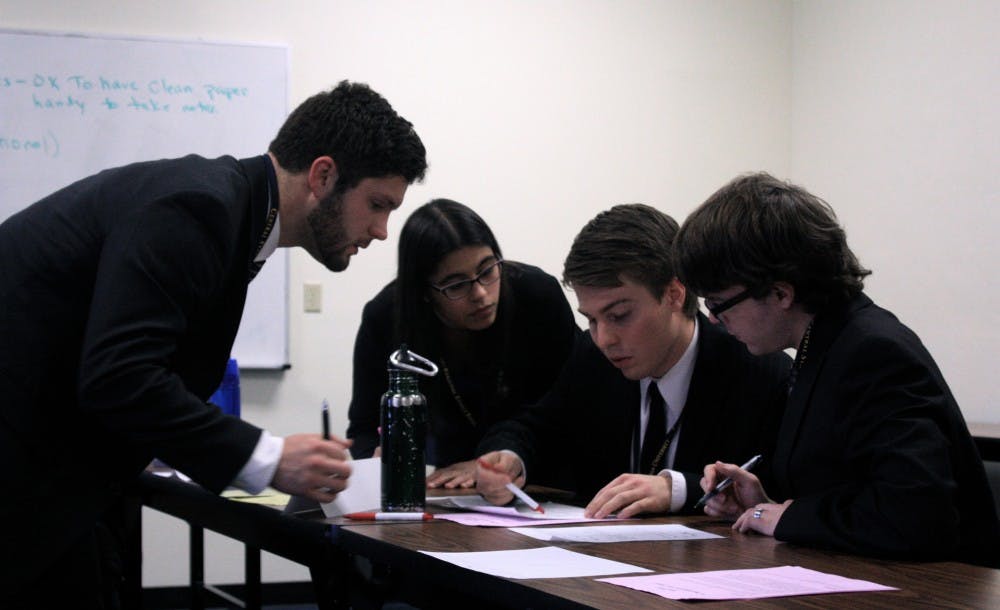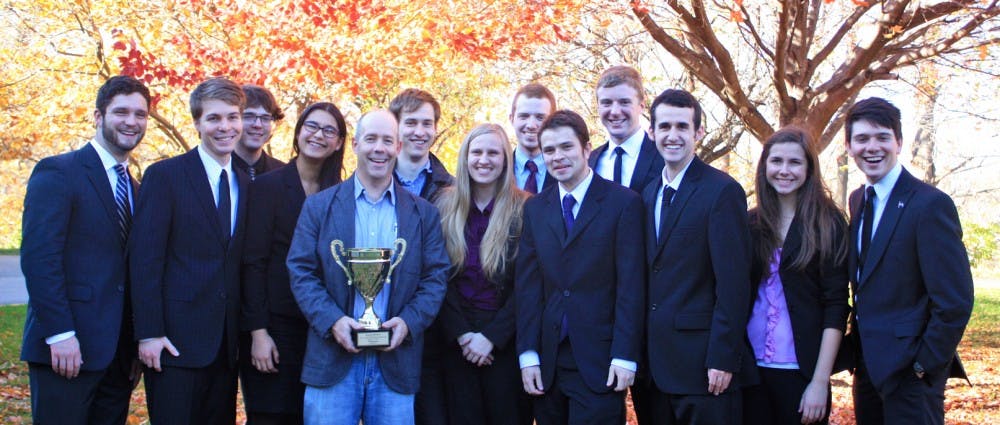By Abigail Pollock | Echo

There is only one trophy, but all three of Taylor's Ethics Bowl teams came back as champions. The university took first, third and fifth place at the Central States regional competition on Nov. 9, ensuring Taylor a place in the national competition in the spring.
The national Eighteenth Intercollegiate Ethics Bowl Championship will involve the top scoring 32 teams from regionals, and will be held in Jacksonville, Fla., on February 27. The championship represents not only the highest level of ethical debate in the country, but also a chance to redeem last year's narrow one-point loss to DePauw-a win which put Taylor in second place.
Ethics bowl is built around the concept of applied ethics. Fifteen case studies are issued for preparation, addressing topics ranging from surrogacy to sweatshop workers and organ donation.
According to senior Suzanne Neefus, the relevance of the cases is a strength of Ethics Bowl.
"It's a chance not only to think critically about the philosophy of ethics, but to apply what we learn to real issues in society," Neefus said.
Although the Ethics Bowl participants, or E-bowlers, represent Taylor at the competition, they do not have to choose a stance based on the university's official position on an ethical issue. Arguments are built around the ethical principles of philosophers such as Immanuel Kant and John Rawls, but pull in relevant research and even precedent from legal cases.
In the competition points are awarded not based on what side a team takes but rather on the critical thinking and ethical understanding students demonstrate when arriving at their conclusion.

The cases are divided up between team members, and each member decides their position and arguments on their primary cases. During weekly meetings, the cases are presented, and hours are spent challenging, arguing through and refining those positions. The arguments are then memorized by the whole team so everyone is prepared to contribute on the six cases called at regionals.
Sophomore Kasey Leander commented on the value of this highly critical preparation and the input of his team members.
"Ethical conundrums are not as they seem at face value. There are always multiple sides, and before you make up your mind about something, you have to wrestle with all aspects of the issue," Leander said.
The hours spent in team meetings are about more than just systematic arguments and critical thinking, however. Sophomore Veronica Toth commented on the relational aspect of Ethics Bowl.
"Being part of this team is so valuable, because you get to know people through a level of honesty and discussion that can be difficult to find on campus. After spending hours debating ethical beliefs on controversial topics, you find out you know someone pretty well," Toth said.
According to coach Cathy Kerton-Johnson, this attitude reflects the natural strength of the team and an enthusiasm for learning which characterizes Taylor students.
"The passion for critical thinking and debate isn't contrived," Kerton-Johnson said. "They have confidence and unity as a team that comes out of their natural enjoyment of it."
For those who share an interest this interest in ethics and debate, the teams hosts several mock competitions on campus during the fall and spring semesters. The mock debates help the team assess their performance and prepare for the pressure of Ethics Bowl. They have the added benefit of generating deeper discussion of social issues on campus.
The teams get a short break between now and the beginning of January, when the cases for the national competition are given out. Suzanne Neefus, Nathaniel Cullen, Veronica Toth, Jess Biermann and Mark Taylor were selected to present as Taylor's official team at nationals, but everyone will prepare together and some or all will accompany the team as alternates.
Excitement for nationals is running high. For those with more competitive personalities, the chance to avenge last year's loss and take the first place spot is highly motivating. In general, the team spoke more about their thankfulness for the chance to continue to prepare together and compete in the spring.
Coach Jim Spiegel attributes much of their competitive success to the overall character of the group.
"The students have ownership of the team-the senior members take it on themselves to prepare the underclassmen. There is a point every semester where Ethics Bowl becomes a priority, and fortunately as a coach, I never have to ask my students for that commitment. That's a choice they make because they want to be the best," Spiegel said.





